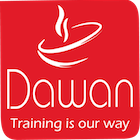Goals
- Prepare to pass the ITIL Service Strategy (SS) certification exam
- Analyze the principles, techniques and relationships to create an SS
- Identify the purpose, scope and objectives of each SS process
- Assess governance IT to strategize and leverage governance frameworks and organizations
Program
– Explore the purpose and objectives of the service transition
– The scope of the service transition phase in relation to the production, control and validation processes
– Develop an effective service transition strategy
– The approach and best practices in planning and coordinating service transition activities
Change management
– Purpose, goals and objectives
– Apply changes with a minimum of interruptions and extra work
– Business, technical and financial aspects
– Make a successful service transition
– Activities, methods and techniques
– Post-implementation reviews implemented
– Key metrics to assess success
Service asset and configuration management (SACM) – Business value of the SACM process
– Activities, methods and techniques
– Contribute to the efficient execution of the SACM process using a configuration management system (CMS)
– Describe the tools , the business model and deliverables to perform each key activity
– Effectively measure SACM processes with metrics
– Daily configuration management activities
Service and Test Validation (SVT)
– How SVTs create business value
– Identify how policies can encourage and sustain the execution of the SVT process
– Triggers, inputs, outputs and interfaces
– Acquire the Appropriate test data
– Produce quality service deliverables using test levels and test models, measure the SVT process in terms of contribution to business value
Management of releases and deployments – Analyze the release of services
– Plan, schedule and control the release
– Identify clear planning conditions, including pass / fail criteria
– Illustrate the main activities and how for which they are linked to production, control and validation
– The key phases to carry out the transfer
– Define measures for the quality of the processes
Analyze the processing of service requests
– Execution of requests to establish a self
– help service practice – Identify the differences between execution of requests and incident management
– Achieve the performance of service levels defined in advance
– Voluntary and unintended effects of the change
– Evaluate the forecast performance and the actual performance of a service
– The business value of the KM process
– Identify what constitutes an effective KM strategy
– Analyze the elementary levels of the KM concept through the DIKW structure
– Describe the key steps of effective data and information management
– Management of changes in service assets and configurations, production and deployment
– Execution of requests and evaluation of changes
– Technology as part of service management implementation
– Evaluation criteria for service management tools
– Good practices with service design
Duration
5 days
Price
£ 2352
Audience
IT directors, managers, system administrators, developers, all those concerned by IS
Prerequisites
Have taken the ITIL Foundation course or equivalent concepts
Reference
GES101216-F
Sessions
Contact us for more informations about session date
